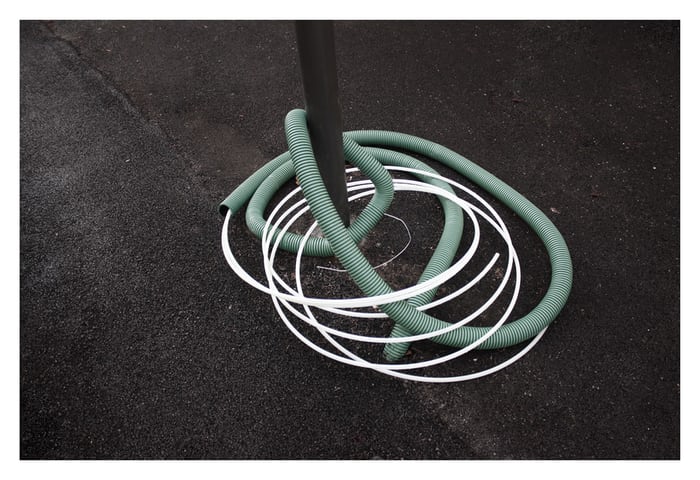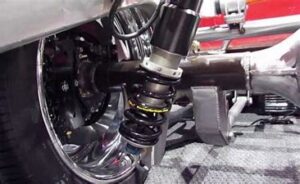Table of Contents
What Is Hydraulic Hose?
A more pressured, man-made rubber thing that transfers force from fluid inside a hydraulic machine is a hydraulic hose.
It is not as simple as it looks. A lot of factors are to be taken care of when it comes to the manufacturing and designing of hydraulic hoses. A hydraulic hose is very useful when it comes to parts that move or vibrate.
Construction Of Hydraulic Hose:
Today’s hydraulic hoses have three important segments: a tube inside the machine that transmits the liquid, a supportive covering and a layer outside that protects the hose.
The inner tube can be folded or bent and is frictionless. The supportive covering consists of woven wire or helical wire or normal yarn thread. The selection of the outermost covering depends largely on the atmospheric conditions.
To get a good life of the hose, the right kind of hose must be used and the size should be perfect.
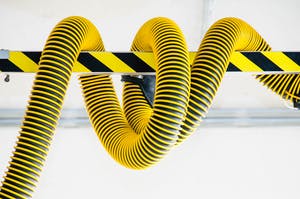
Selecting The Proper Hydraulic Hose:
A person who designs the hose has to keep these seven things in mind which have first letters which join to make the word STAMPED.
Size
An accurate calliper must be used to measure the radius of the inner and outer layers of the hose.
The Temperature
The temperature of the liquid to be passed through the hose must be kept in mind while selecting the material of the hose.
Application
The works which the hose is expected to do must be kept in mind and it should be checked like how much can the hose bend because different applications require different bending radii.
Materials
It is crucial to check whether the liquid and the material of which the hose is to be made are compatible or not.
Pressure Capabilities
The pressure that the hose material can bear must be checked so that a proper pressure hose can be chosen per the fluid pressure.
Hose Ends
The hose ends play an important role because only if they are properly fixed, leakage will not happen. Otherwise, a lot of fluid will get wasted.

Delivery
The ease of transportation, portability, and expenses must also be kept in mind while choosing the hose.
Working Of Hydraulic Hose:
Hydraulic systems are capable of making the force multiply by many times, in other words, they can just increase the torque by large numbers. Mechanical systems need complex machinery to be installed while the hydraulic systems can transfer or transmit the force between two places just with the help of simple hoses fitted at the right place.
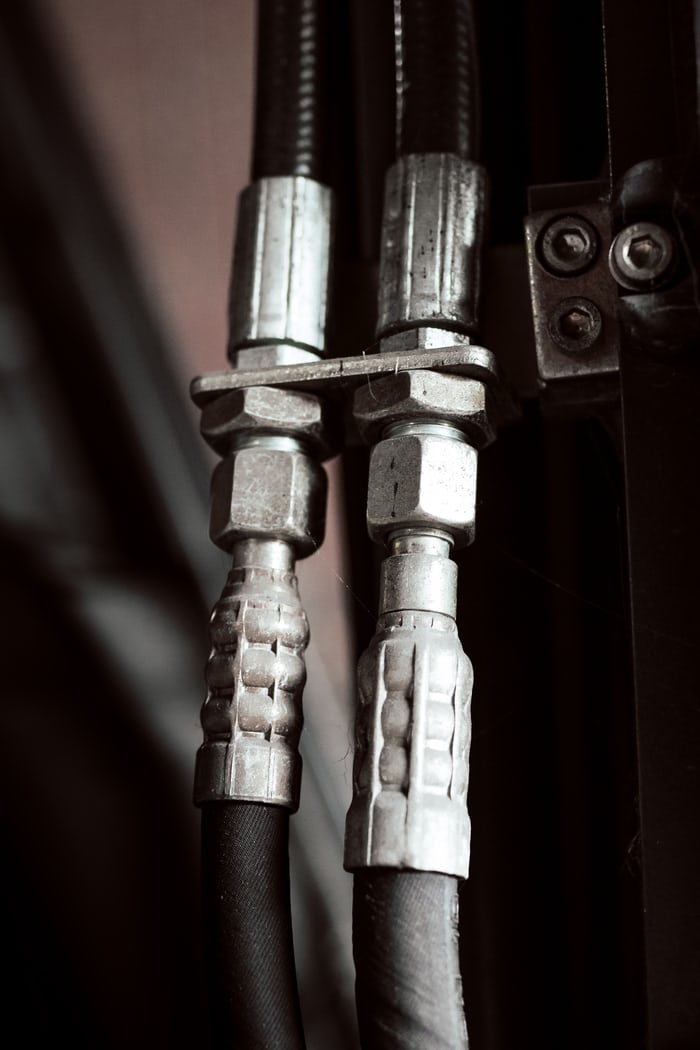
Liquids do not get compressed and no force is used up or wasted in the path. Even if the power is lost, it is very less. The size of the hose can affect(increase or decrease) the force which is expected to be passed.
Types Of Hydraulic Hoses:
It is really important to use the correct hydraulic hose for the correct purpose. Many a time, hydraulic systems stop working due to some breakdowns which are mainly due to the use of wrong hydraulic hoses. So, the selection of correct hoses is a critical task.
Reinforced Rubber:
The weight of the reinforced rubber is very less compared to the metal complements. In case the hydraulic system needs to be transferred from one place to another, this thing’s choice makes a great difference. There are a lot of materials which can be used to n make the hose more strong, some the examples contain steel, fiberglass, etc.
Steel Reinforced Teflon:
It too may happen that the steel becomes hard to handle and manage because of its size or weight. Teflon having a covering of steel behaves alike to steel and can help to solve this problem.
Return Lines:
These are the places that take the liquid again to a pumping source where the pressure gets removed. This part is critical as well because if not considered, the breakdown can take place in the system
Coiled:
Coiled hoses are preferred by everyone mainly because one can pull them, work using them and put them back in their place.
Corrugated And Articulated:
These hoses can expand anytime to compensate for the increased pressure or to cope with the temperature fluctuations.
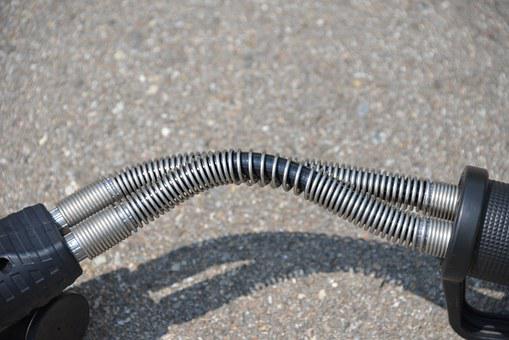
Uses Of Hydraulic Hose:
There are two main purposes for which the hydraulic hoses are specially designed, one being the transfer of some fluid between two places and the other being to control the vibration.
There might be other reasons for using the hoses like they are made available easily and can be fitted with ease. These can easily bend or can be carried which makes them preferable over many other things. These are strong and rigid at the same time as well.
Advantages Of Hydraulic Hose:
- Small forces can be converted into very large ones very easily with the help of hydraulic hoses.
- The hydraulic systems which operate using hydraulic hoses can easily maintain a grip over the speed with precision.
- One hydraulic pumping source can be used to operate many machines at the same instant time using the hydraulic hoses.
- These are very less prone to the expansions as the vibrations are very less.
Disadvantages Of Hydraulic Hose:
There are some disadvantages of hydraulic hoses as well.
- It is not practically possible to get rid of all the leakages of fluids in the hoses.
- If the temperature of the working fluid increases and reaches the ignition temperature, the hose can easily burn without any warning at all.
- Serious harms can be caused in case the hydraulic hoses explode due to some pressure or temperature fluctuations.
- The working fluids can be corrosive at times and in certain conditions.
Caution:
Due to their working at high-pressure conditions, hydraulic hoses can explode or burst anytime and can become a reason for violent damage and even injuries. So, a proper check on hydraulic hoses is crucial.
Frequently Asked Questions:

So, here are some of the frequently asked questions about what is a hydraulic hose, where is hydraulic hose used etc?-
What Is A Hydraulic Hose?
Where Is Hydraulic Hose Used?
Can Hydraulic Hose Be Used For Water?
- Delivery Hose which is connected to the discharge side
- Hose Reel Hose: These are made of reinforced rubber fitted with a swiveling joint . A squeeze nozzle is provided at one end.
What Is Standard Hydraulic Hose Size?
What Is The main Difference Between Industrial Hoses And Hydraulic Hoses?
-
Conclusion:
The construction, working, types, advantages, and disadvantages of the hydraulic hoses have been discussed in the above article.
If you have any queries related to your article, please drop a comment below.
Cheers!
